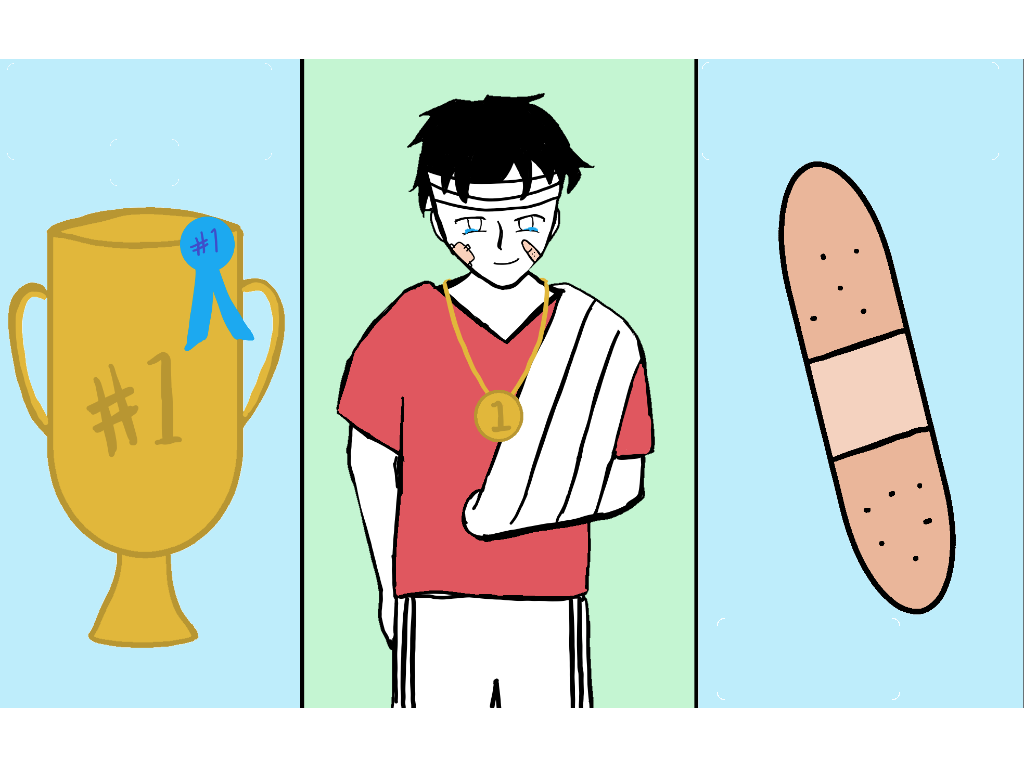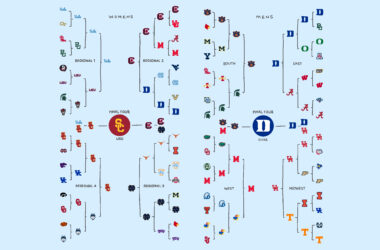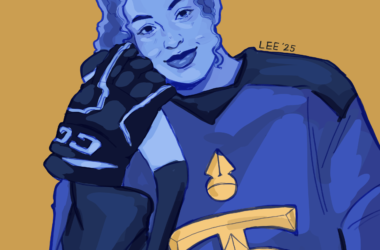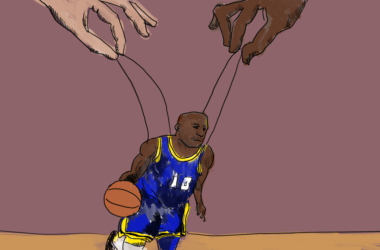I lost my grade 11 basketball season to injury. Returning from a sprained ankle just in time for the season, all I wanted was to play. I just had to push through and make it happen. But, I was weak; my leg was weak. That’s when I tore my vastus intermedius, the deepest of four muscles in the right quadricep, which ended my season.
Injuries, as devastating as they can be, are widely accepted as an inevitable consequence of playing sports. Athletes know that they take a calculated risk every time they train or compete, yet they play because the joy of sport is unparalleled. Still, with the highs come the lows: For me and countless other athletes, sports can be our undoing.
Gordon Bloom, a professor of Sports Psychology and the Director of the McGill University Sport Psychology Research Laboratory, described the psychological impact that an injury can have on athletes.
“It is a lot more traumatic than I think people realize,” Bloom said. “If an athlete sustains a really serious injury, they actually, in a lot of cases, go through a similar process as […] someone who is grieving.”
Grief occurs in seven stages, the first of which is denial. Bloom explained that athletes will question whether they are truly hurt and how bad their injury is. Helen Wu, U2 Science, tore her anterior cruciate ligament (ACL) playing basketball and underwent this experience.
“I thought that it was just going to be a quick fix, and then I could get back at it again,” Wu said in a video interview with The McGill Tribune.
Bloom explained that the denial quickly turns to anger, and athletes begin to indignantly question why they were the one to suffer an injury. In many cases, this makes the athlete surly and difficult to be around. Lauren Herweyer, a second-year McGill field hockey player who tore her ACL in high school, acknowledged her own disagreeable temperament after her injury.
“I was so tightly wound just because I was taking the elevator at school and wasn’t allowed to practice,” Herweyer said. “I was so upset by all of it that I started to not handle anything in my life well.”
Bloom also noted athletes’ tendencies to bargain with doctors and coaches, protesting the diagnoses, recovery timetables, and their practicing constraints as they come to grips with the sadness and frustration they experience.
Herweyer demanded that her mother take her to practice three days after sustaining her injury and then played in the provincial championship tournament while injured. As a result, she required extra medical care during games as well as immediate and constant ice afterward to make the pain of her injury manageable.
Athletes also feel an absence in their lives when their injuries prevent them from participating in their sport. For many, sports are not only a constant presence but also serve as an emotional outlet and provide a sense of belonging. Without this stability, the outcome can be disastrous.
“In some cases, it goes to the point of depression,” Bloom said. “They are suffering mentally [… and] are just unable to control their emotions.”
Bilal Virji, U3 Arts and a student filmmaker, conducted interviews with McGill student-athletes for his project “Recovery.” He described how he struggled with his own injury, a repeatedly-torn ACL.
“The most difficult part about [the injury] was not the physical scars but the mental ones,” Virji said. “Sport was my form of meditation [….] It was my coping mechanism for everything that life threw at me, and, in an instant, it was all taken away from me.”
Many athletes recalled suffering from depression, eating disorders, or drug addiction and considered dropping out of school. Dorothea Stefanou, a U2 Arts student and gymnast who dislocated her elbow, recalled her own struggles.
“The injury was kind of the beginning of the end for me,” Stefanou said. “I was fighting for it before that, but, [after the injury], I kind of realized that I couldn’t overcome my mental challenges.”
Friends, family, and even coaches often fail to comprehend the mental trauma and challenges that injured athletes experience. This only further exacerbates the difficulty of their recovery.
“People just ask an athlete, ‘How’s your knee doing? How’s the recovery?’” Bloom said. “It’s all about the physical instead of saying, ‘How are you feeling? How are you doing?’”
Additionally, student-athletes are often constrained by graduation dates. If they do not play now, they will lose out on their final chances to play and even the opportunity to play at a higher level.
Concerned with missing out on a limited number of seasons, athletes face a difficult choice: Return as quickly as possible, or take more time to recover and prevent reinjury. This can become a profound mental handicap because, while the months absent from sport are difficult, returning too soon can be equally daunting, as one’s mind becomes preoccupied with thoughts of reinjury.
“On the floor, where I’d always been confident, I [became] afraid to do any tumbling where I’d land facing backward,” Stefanou, who was injured performing such a maneuver, said.
Despite caution, reinjuries happen frequently. Athletes’ competitive nature can cause them to push their bodies to the point of failure if they are unwilling to take breaks.
“[My ACL] took a long time to heal, and it never healed properly, so I reinjured it four or five more times after that,” Herweyer said.
My own injury came as a result of this same forced error: I pushed my body too hard, failed to receive proper physical and mental help, and was unwilling to rest. Yet, my injury would not prevent me from playing basketball forever, and I wish I had understood that at the time. My quadricep will never work the same again because I foolishly played when I should not have, but I managed to return a season later and help my team win a provincial championship. I may never have that single season back, but my injury was not the end, either.
Wu looks back on her experience with the same insight.
“The struggles you go through now, the struggles you have, they’re going to teach you something,” Wu said. “This didn’t happen for nothing. This happened to make you stronger, to teach you, to build your character. Learn from everything that happens to you, whether good or bad.”
This feature was produced in coordination with The McGill Tribune’s Multimedia section. Find the video accompaniment “Recovery” by Bilal Virji on our website.








